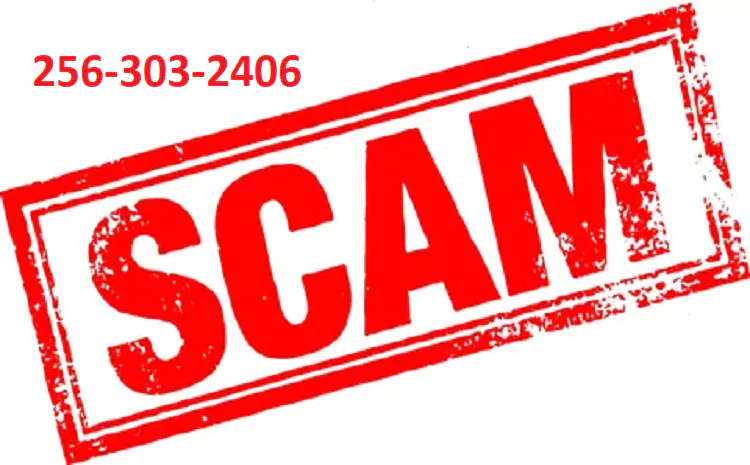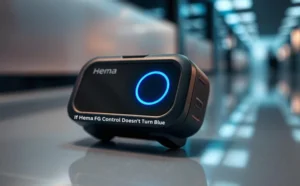In today’s digital age, phone scams have become more sophisticated and prevalent. We’ve all experienced that sinking feeling when an unknown number pops up on our phones, and one such number, 256-303-2406, has been causing quite a stir. Is it a scam? How do you protect yourself if it is? Let’s dive into the details to uncover the truth behind this mysterious number and phone scams in general.
What Are Phone Scams?
Phone scams are fraudulent schemes where scammers use phone calls to trick individuals into providing personal information, such as credit card details, social security numbers, or other sensitive data. These scams can take many forms, including impersonating government agencies, tech support, or even loved ones in distress.
The Rise of Phone Scams in Recent Years
With advancements in technology, phone scams have evolved. Scammers can now use sophisticated tools to disguise their numbers, making it harder to differentiate between legitimate and fraudulent calls. This has led to an uptick in scam calls, causing distress to millions of people worldwide.
256-303-2406: What We Know So Far?
There have been numerous reports about 256-303-2406, with many claiming that it could be a scam number. Complaints range from aggressive tactics to attempts to collect personal information. The common pattern involves unsolicited calls, often at odd hours, and callers using pressure tactics to elicit a response.
Red Flags That Suggest a Scam
- Unsolicited Calls: Scammers often call randomly without any prior contact.
- Urgent or Threatening Language: Phrases like “Your account will be suspended” or “You owe money” are common scare tactics.
- Requests for Personal Information: Asking for social security numbers, banking details, or passwords is a major red flag.
How Do Scammers Use Numbers Like 256-303-2406?
Scammers often use a technique called spoofing, where they disguise their real phone numbers with local or familiar numbers to trick you into answering. They may also use automated messages or robocalls to reach a large number of people in a short time. Numbers like 256-303-2406 can be part of these tactics, creating a facade of legitimacy.
How to Identify a Scam Call?
- Check for Common Signs: Unrecognized numbers, robotic voice messages, or overly aggressive language can indicate a scam.
- Use Caller ID Apps: Apps like Truecaller can help identify and block suspected scam numbers.
- Do Not Share Personal Information: Never give out personal information unless you are certain of the caller’s identity.
What to Do If You Receive a Call from 256-303-2406
- Do Not Answer: If the number is unknown, let it go to voicemail.
- Block the Number: Most smartphones allow you to block specific numbers.
- Report the Number: Use services like the FTC’s Do Not Call Registry to report suspected scam numbers.
Why Scammers Choose Random Numbers
Scammers often choose random numbers to appear more credible. By using different numbers, like 256-303-2406, they attempt to avoid detection by authorities and bypass call-blocking apps. It’s a numbers game for them; the more calls they make, the higher their chances of duping someone.
Protecting Yourself from Phone Scams
- Educate Yourself: Familiarize yourself with common phone scam tactics.
- Use Call Blocking Apps: Tools like RoboKiller or Hiya can help prevent scam calls.
- Stay Calm: Scammers rely on panic. Stay calm and think before reacting.
The Legal Aspect of Phone Scams
Phone scams are illegal, and various laws and regulations exist to protect consumers. Authorities like the Federal Trade Commission (FTC) actively work to combat phone scams, but the sheer volume makes it a challenging task. It’s crucial to report scam calls to aid in these efforts.
Stories from Real People
Many individuals have fallen victim to phone scams. For example, Jane, a retiree, received a call from 256-303-2406, claiming her bank account was compromised. Thankfully, she recognized the red flags and hung up, later reporting the call to her bank and the authorities.
How to Report Phone Scams
- FTC’s Complaint Assistant: The FTC provides an online platform to report phone scams.
- Contact Your Phone Provider: Some providers offer services to help block and report scam calls.
- Local Authorities: Report to your local consumer protection office.
Conclusion
Phone scams, such as those potentially linked to numbers like 256-303-2406, are a growing concern. Staying informed, recognizing the signs, and knowing how to respond can protect you and your loved ones. Remember, it’s always better to be safe than sorry. When in doubt, hang up and report the call.









